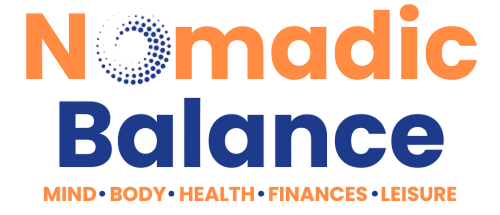Introduction
In today’s fast-paced world, stress has become a common part of life. Work deadlines, financial pressures, and personal responsibilities can all contribute to mental and physical exhaustion. Meditation is a powerful tool that can help reduce stress, promote relaxation, and improve overall well-being.
This article explores the benefits of meditation, how it works, and simple techniques to incorporate it into your daily routine.
What Is Meditation?
Meditation is a practice that involves focusing the mind, eliminating distractions, and achieving a state of calm and clarity. It has been practiced for thousands of years in various cultures and is widely used today to enhance mental and emotional health.
There are different types of meditation, including:
- Mindfulness Meditation – Focusing on the present moment without judgment.
- Guided Meditation – Using audio or a teacher to direct thoughts and relaxation.
- Transcendental Meditation – Repeating a mantra to reach deep relaxation.
- Loving-Kindness Meditation – Cultivating feelings of compassion for oneself and others.
How Meditation Reduces Stress
1. Lowers Cortisol Levels
Cortisol is the hormone responsible for stress. High cortisol levels can lead to anxiety, high blood pressure, and sleep disturbances. Studies show that regular meditation helps reduce cortisol production, leading to a calmer mind and body.
2. Improves Emotional Regulation
Meditation strengthens the prefrontal cortex, the part of the brain responsible for emotional control. This helps individuals respond to stress in a more balanced and rational way rather than reacting impulsively.
3. Enhances Focus and Concentration
Stress can make it difficult to concentrate. Meditation trains the brain to stay focused, which improves productivity and decision-making.
4. Promotes Relaxation and Better Sleep
Practicing meditation before bed helps calm racing thoughts, making it easier to fall asleep and stay asleep. Deep breathing and guided meditations are especially effective for promoting restful sleep.
5. Strengthens the Mind-Body Connection
Stress affects both the mind and body. Meditation encourages deep breathing, which relaxes muscles, reduces tension, and lowers heart rate. This creates a sense of overall well-being.
Simple Meditation Techniques to Reduce Stress
1. Mindful Breathing
A simple yet effective way to calm the mind.
How to do it:
- Find a quiet place and sit comfortably.
- Close your eyes and take a deep breath in through your nose.
- Exhale slowly through your mouth.
- Focus on the sensation of your breath entering and leaving your body.
- Repeat for 5-10 minutes.
2. Body Scan Meditation
Helps release physical tension and relax the body.
How to do it:
- Lie down in a comfortable position.
- Close your eyes and take slow, deep breaths.
- Start at your toes and mentally scan each part of your body.
- Notice any tension and consciously relax those areas.
- Continue until you reach the top of your head.
3. Guided Meditation
Useful for beginners who need assistance in focusing.
How to do it:
- Find a guided meditation online or use an app like Calm or Headspace.
- Follow the instructions of the audio guide.
- Allow yourself to relax and focus on the voice.
4. Loving-Kindness Meditation
Promotes positive emotions and reduces negative thinking.
How to do it:
- Close your eyes and take deep breaths.
- Think of someone you love and send them kind thoughts.
- Expand these feelings to yourself and others, including people you may have conflicts with.
- Repeat phrases like “May I be happy. May I be healthy. May I be at peace.”
5. Walking Meditation
Combines mindfulness with gentle movement.
How to do it:
- Walk slowly in a quiet place, like a park or garden.
- Focus on each step, feeling the ground beneath you.
- Take deep breaths and be aware of your surroundings.
- Let go of distractions and enjoy the present moment.
How to Make Meditation a Daily Habit
Starting a meditation routine can be challenging, but consistency is key. Here are some tips:
- Start Small – Begin with just 5 minutes a day and gradually increase.
- Pick a Set Time – Morning or before bed works well for many people.
- Create a Calm Space – A quiet, clutter-free area enhances the experience.
- Use a Timer – This helps you stay focused without worrying about time.
- Be Patient – Meditation is a skill that improves with practice.
Final Thoughts
Meditation is a simple yet powerful tool for reducing stress and improving overall well-being. Whether through mindful breathing, guided sessions, or movement-based practices, meditation helps calm the mind, lower anxiety, and create a sense of balance.
By incorporating meditation into your daily routine, you can experience long-term benefits for both your mental and physical health. Start today and take the first step toward a more peaceful and stress-free life.


I’m loved this articule . Very well written and insightful. Congratulations to the autor .
Thank you so much for your kind words! I’m thrilled that you enjoyed the article and found it insightful. Comments like yours make all the hard work worthwhile!